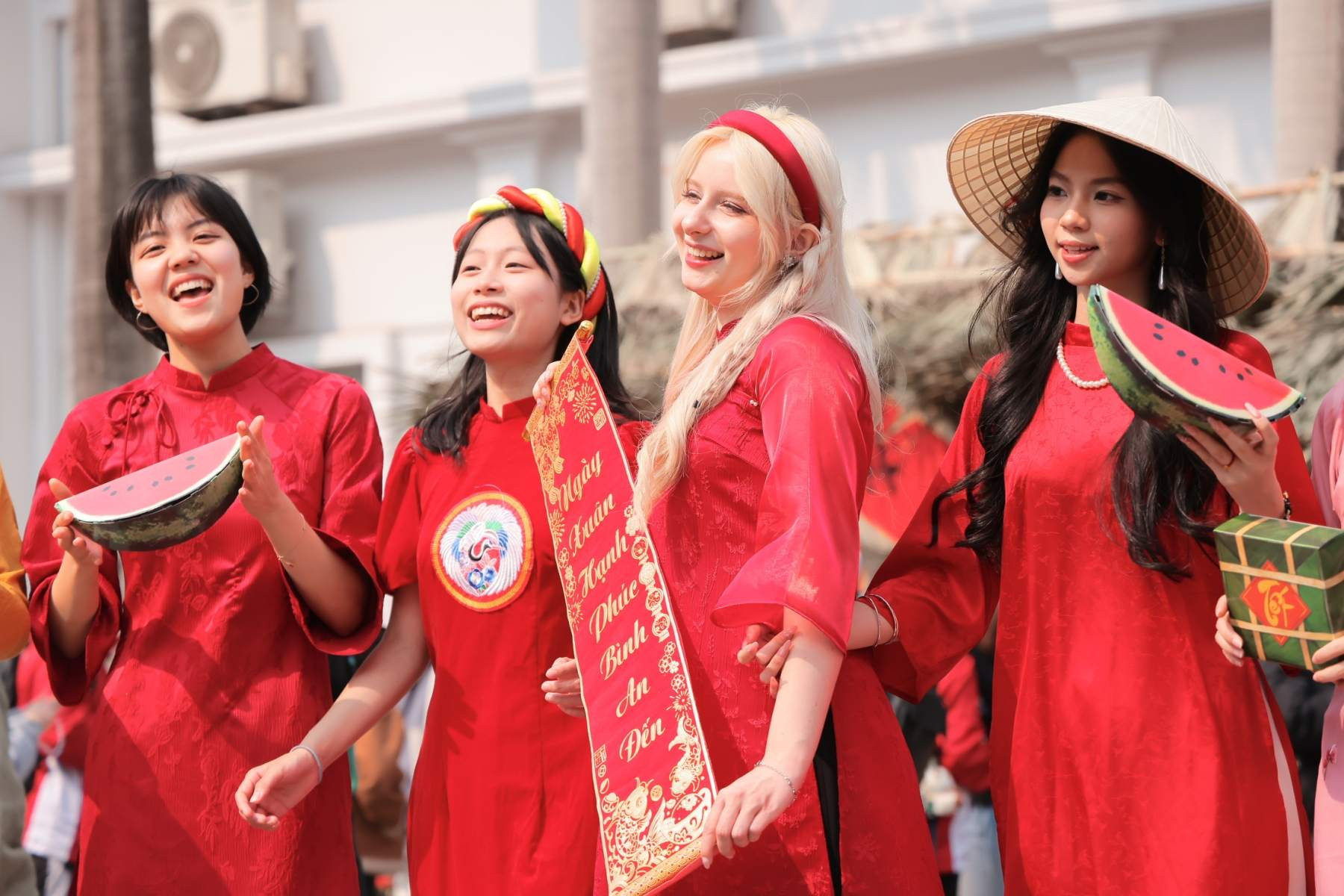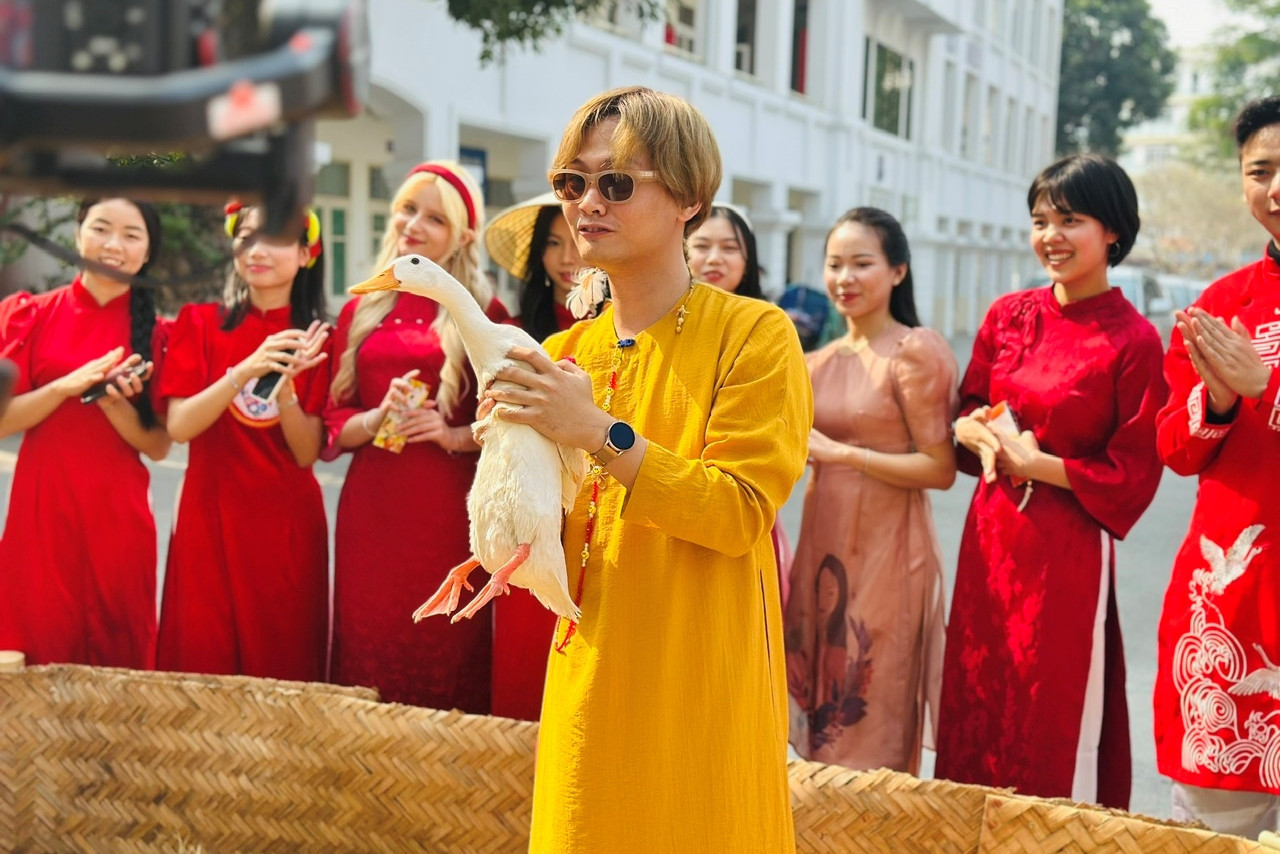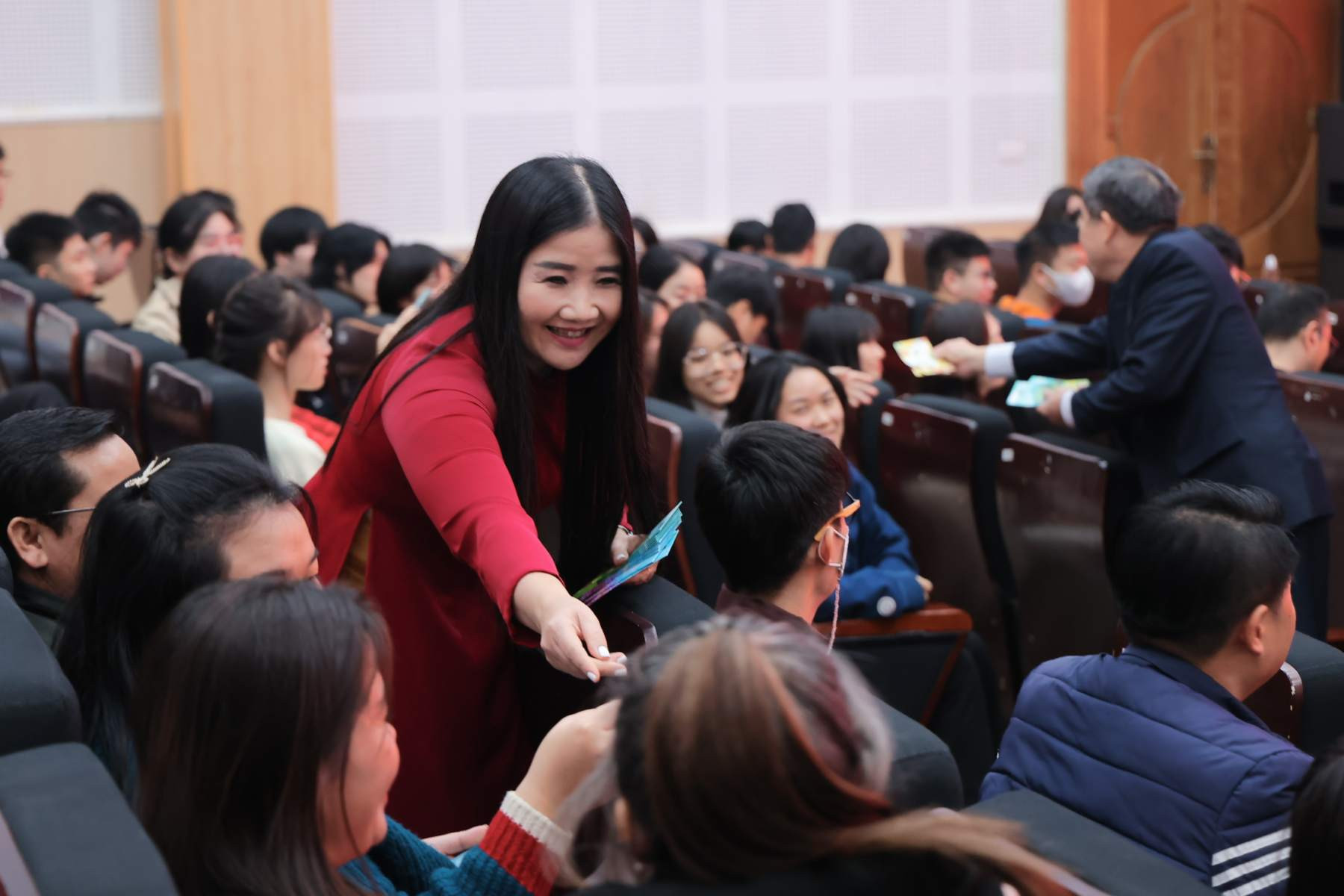
Hundreds of red envelopes containing lucky money were gifted to international students by teachers at Hanoi University, leaving many surprised by the “unique and vibrant” traditions of Tet in Vietnam.
Atarashi Saku, a third-year student in the Vietnamese Studies department at Hanoi University, is celebrating her second Tet in Vietnam. The Japanese student remains excited about the holiday, having first experienced it at a friend’s family home in Vinh Phuc last year.
During her initial Tet celebration, Saku participated in traditional activities like shopping for peach blossoms, wearing an ao dai (Vietnamese traditional dress), making bánh chưng (square sticky rice cakes), singing karaoke, and enjoying festive Vietnamese dishes. Enthralled by bánh chưng and spring rolls, she gained 4 kilograms after the holiday.
Embracing Tet traditions

Li Na, an exchange student from China, learns to wrap bánh chưng.
This year, Saku chose to stay in Vietnam again, joining hundreds of international students at a pre-Tet celebration organized by the university. Activities included lion dances, calligraphy, traditional games, and receiving lucky money (lì xì).
“I love receiving lucky money the most. It’s such a fascinating cultural practice. The amount doesn’t matter; it’s the gesture that symbolizes good fortune and blessings,” Saku shared.
Comparing Tet in Vietnam with New Year celebrations in Japan, Saku noted significant differences. While Japan celebrates according to the Gregorian calendar with temple visits and traditional soba noodles for longevity, Vietnam’s Lunar New Year involves extensive preparations, such as cleaning the house, shopping, and arranging offerings like the five-fruit tray (mâm ngũ quả).
“I’ve already made plans to celebrate this Tet at a friend’s hometown, hoping to experience its full meaning and joy,” she said.
Experiencing Vietnamese culture
For Li Na, an exchange student from China, this is her first time experiencing Tet in Vietnam. She found learning to make bánh chưng particularly challenging, especially folding the leaves to create a perfect square shape.
In her hometown of Yunnan, there is a similar sticky rice dish, but it is smaller and typically steamed or boiled. However, dumplings, chicken, and fish are more common during the Chinese New Year.
“Everything feels new to me. I’m learning to prepare Vietnamese dishes like spring rolls and bánh chưng,” Li Na said.
Meanwhile, Lloyd Julian, a Filipino student, enjoyed the traditional Tet game of tossing rings onto ducks’ necks. Celebrating his third Tet in Vietnam, Lloyd remains fond of dishes like chả giò (fried spring rolls) and bánh chưng.
Each year, Lloyd chooses to spend Tet at a different friend’s home in places like Son Tay (Hanoi), Nam Dinh, and Ninh Binh to learn more about regional traditions.
“Tet in Vietnam is so warm and lively. It makes me feel as if I’m back in my own homeland,” he said.
Connecting through Tet

Lloyd Julian (in yellow), a Filipino student, enjoys a traditional Tet game of tossing rings onto ducks’ necks.

According to Dr. Nguyen Thi Thanh Xuan, head of the Vietnamese Studies department, Hanoi University currently hosts more than 700 international students, with over half choosing to stay for Tet this year.
To help these students better understand Vietnamese culture, the university organizes various activities, including calligraphy, bánh chưng wrapping, spring roll preparation, lucky money gifting, and traditional games like nhảy sạp (bamboo dancing) and clay figurine making (nặn tò he).
During Tet, students also visit teachers’ homes to exchange New Year’s greetings and share meals, fostering a deeper connection with Vietnamese culture.
“These Tet experiences help students feel loved and included, while also deepening their understanding of Vietnam’s culture and people. They will become cultural bridges between Vietnam and the world,” Dr. Nguyen Thi Thanh Xuan said.
Thuy Nga